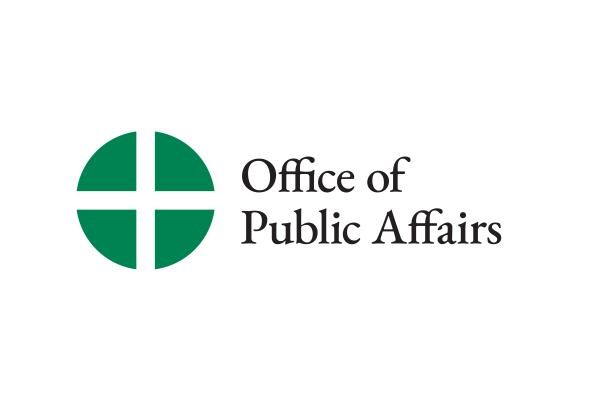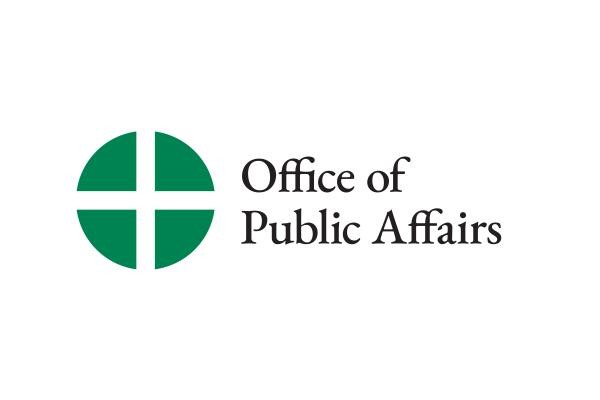CATHOLIC-JEWISH DIALOGUE EXAMINES NOTE ON COVENANT AND MISSION
WASHINGTON—Representatives of the U.S. Bishops and two Orthodox Jewish associations examined the recent Note on Covenant and Mission from the United States Conference of Catholic Bishop (USCCB) during a June 25 meeting in New York.
WASHINGTON—Representatives of the U.S. Bishops and two Orthodox Jewish associations examined the recent Note on Covenant and Mission from the United States Conference of Catholic Bishop (USCCB) during a June 25 meeting in New York. The discussion was part of the regular consultation of the USCCB-Rabbinical Council of America/Union of Orthodox Jewish Congregations of America.
The bishops issued A Note on Ambiguities Contained in Reflections on Covenant and Mission, June 18, to clarify aspects of a 2002 statement by a group of Catholic and Jewish scholars associated with a standing dialogue between the USCCB and the National Council of Synagogues. Some Catholic leaders had felt the efforts in “Reflections” to recognize the validity of the Jewish covenant appeared to undercut Catholic responsibility to witness to the entirety of the Christian faith.
At the June 25 meeting, David Berger, Ph.D., head of the Jewish Studies Department at Yeshiva College, New York City, cited “grave” concerns of some in the Jewish community about the Note, which was prepared by the USCCB’s Committee on Doctrine and Committee on Ecumenical and Interreligious Affairs.
Orthodox Jews can tolerate any Christian view on the necessity of faith in Jesus Christ as savior of all, but they cannot agree to participate in an interfaith dialogue that is a cover for proselytism, Berger said.
The Note affirmed that interreligious dialogue involves “a mutually enriching sharing of gifts,” but also asserted that giving witness to the following of Christ is implicit in every faithful encounter with persons of other religious convictions.
Berger and the other Jewish participants asked if the “implicit witnessing to Christ” means, in effect, a subtle attempt to convert Jews to Christianity, which would render interreligious dialogue with Catholics illegitimate and “dangerous” from an Orthodox Jewish standpoint. “We take apostasy very seriously,” he said, referring to the abandonment of Judaism for another religion.
Father James Massa, Executive Director for the Secretariat of Ecumenical and Interreligious Affairs at the USCCB, assured participants that interreligious dialogue for the Catholic bishops is never about proselytism or any coercive methods that would lead a person to abandon his or her religious convictions.
“The important term in this discussion is ‘witness,’” Father Massa said. “As Catholics involved in a dialogue of truth, we cannot help but give witness to Christ, who, for us, is synonymous with truth. Without acknowledging our indebtedness to God’s revelation in Christ, we cannot sit at the table and speak as Christians about how we arrive at notions of justice, compassion and building up the common good—the very values our interreligious dialogues seek to foster.”
The consultation is co-chaired by Bishop William Murphy of Rockville Centre, New York, and Rabbi Fabian Schonfeld, Chairman of the Rabbinical Council of America's Joint Committee on Interreligious Affairs. The members also discussed local state issues of concern to both communities.
James Cultrara, Director for Education of the New York State Catholic Conference, updated members on efforts to expand tax credits for parents who send their children to private schools in New York. The issue of school choice brought the Orthodox Jewish and Catholic communities together in 2006, when the New York State Assembly passed a limited bill that provided tax relief for lower income families with children in private schools.
Participants also discussed state legislation that would have rolled back the statutes of limitation on civil lawsuits that could be brought for alleged sexual abuse of minors, regardless of how long ago the alleged abuse occurred. The “Child Victims Act,” sponsored by Assemblywoman Margaret Markey (D-Maspeth), had the support of the Rabbinical Council of America, but was strongly opposed by the Catholic Church in New York for targeting private institutions.
Thomas Renker, General Counsel for the Diocese of Rockville Centre, reported that the State Catholic Conference endorsed an alternative proposal by Vito Lopez (D-Brooklyn) that would have included public schools, where cases of abuse of minors far exceed those in religious-based institutions. When the New York Assembly concluded its session on June 22, neither bill was put before the body.
Bishop Murphy said the Catholic Church has worked diligently in the past seven years to create safe environments for children and requires all church workers and volunteers to undergo training on how to detect signs of sexual abuse of minors. Eileen Puglisi, Rockville Centre’s Diocesan Director of the Office for the Protection of Children and Young People, distributed literature on the Rockville Centre Review Board and counseling opportunities for victims of abuse. She also fielded questions from the participants.
Co-founded in 1998, by the late Cardinal John O’Connor, the consultation meets to discuss moral and cultural issues that impact Catholic and Jewish life in the nation. Previous meetings have addressed anti-religious bias in the media and peace initiatives to resolve the current Israeli-Palestinian conflict.
Other Catholic members of the dialogue included Jesuit Father Drew Christiansen, Father Lawrence Frizzell, Seton Hall University; Father Lee Descoteaux, Diocese of Rockville Centre’s liaison to the Jewish community; and Father Dennis McManus, Georgetown University and Consultant to the USCCB on Jewish Affairs.
Jewish members included Howard Beigelman, Deputy Director of Public Policy, Union of Orthodox Jewish Congregations of America; Rabbi Basil Herring, Executive Vice President of the Rabbinical Council of America; Rabbi Yonatan Kaganoff, Rabbinical Council of America; Rabbi Tzvi Hersh Weinreb, Executive Vice President Emeritus of the Union of Orthodox Jewish Congregations of America; Betty Ehrenberg, World Jewish Congress, American Section; Rabbi Joseph Karasick, Honorary President of the OU; and Rabbi Eric Greenberg, Director of Interfaith Policy, Anti-Defamation League.


